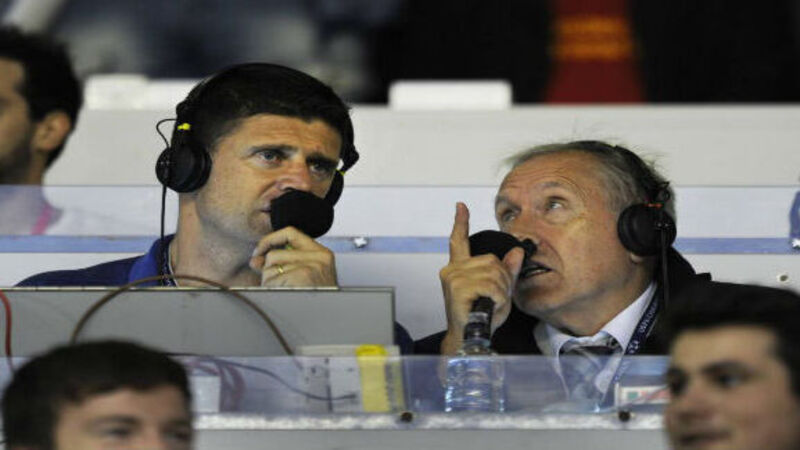How ghosting Jimmy Hill made Martin Tyler the voice heard around the world

Martin Tyler has just abandoned the policy of what seems like a lifetime. He’s done a dummy run of the catchphrase starved Premier League addicts hanker for.
Try from €1.50 / week
SUBSCRIBEThis interview was first published in 2016
Martin Tyler has just abandoned the policy of what seems like a lifetime. He’s done a dummy run of the catchphrase starved Premier League addicts hanker for.
Already a subscriber? Sign in
You have reached your article limit.
Annual €130 €80
Best value
Monthly €12€6 / month
Introductory offers for new customers. Annual billed once for first year. Renews at €130. Monthly initial discount (first 3 months) billed monthly, then €12 a month. Ts&Cs apply.
CONNECT WITH US TODAY
Be the first to know the latest news and updates
Newsletter
Latest news from the world of sport, along with the best in opinion from our outstanding team of sports writers. and reporters
Newsletter
Latest news from the world of sport, along with the best in opinion from our outstanding team of sports writers. and reporters
Thursday, February 12, 2026 - 11:00 AM
Thursday, February 12, 2026 - 7:00 AM
Thursday, February 12, 2026 - 7:00 AM

Select your favourite newsletters and get the best of Irish Examiner delivered to your inbox
© Examiner Echo Group Limited